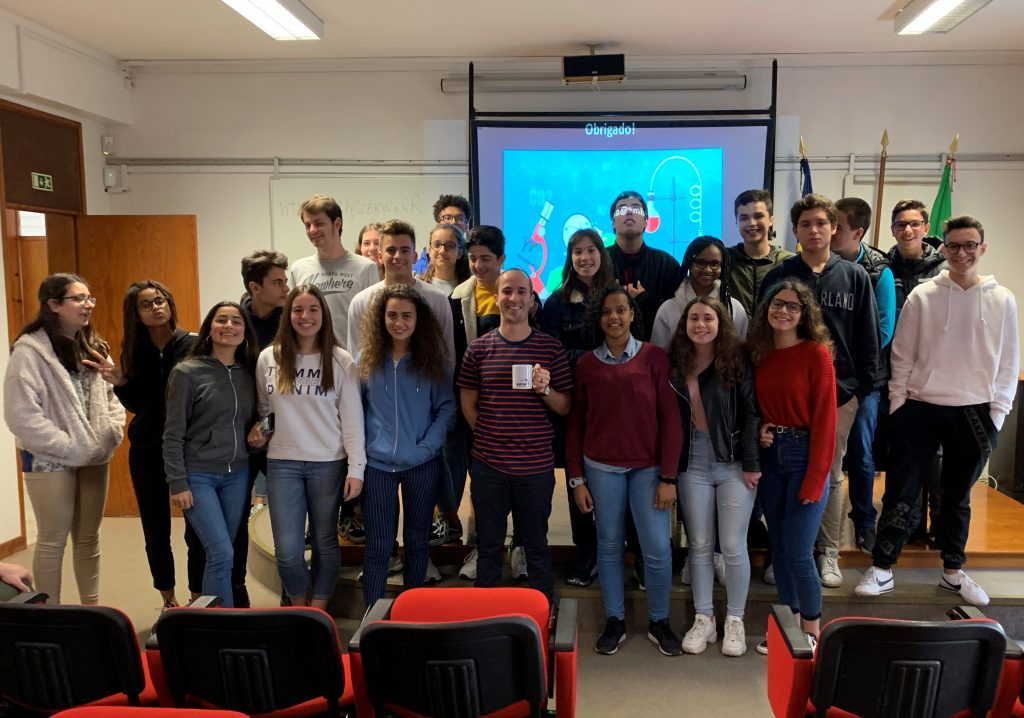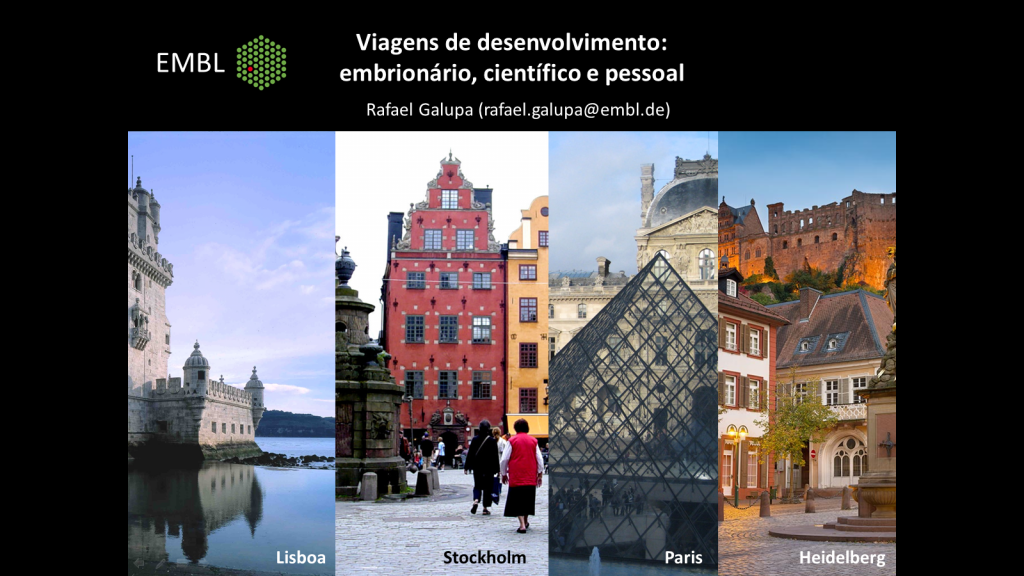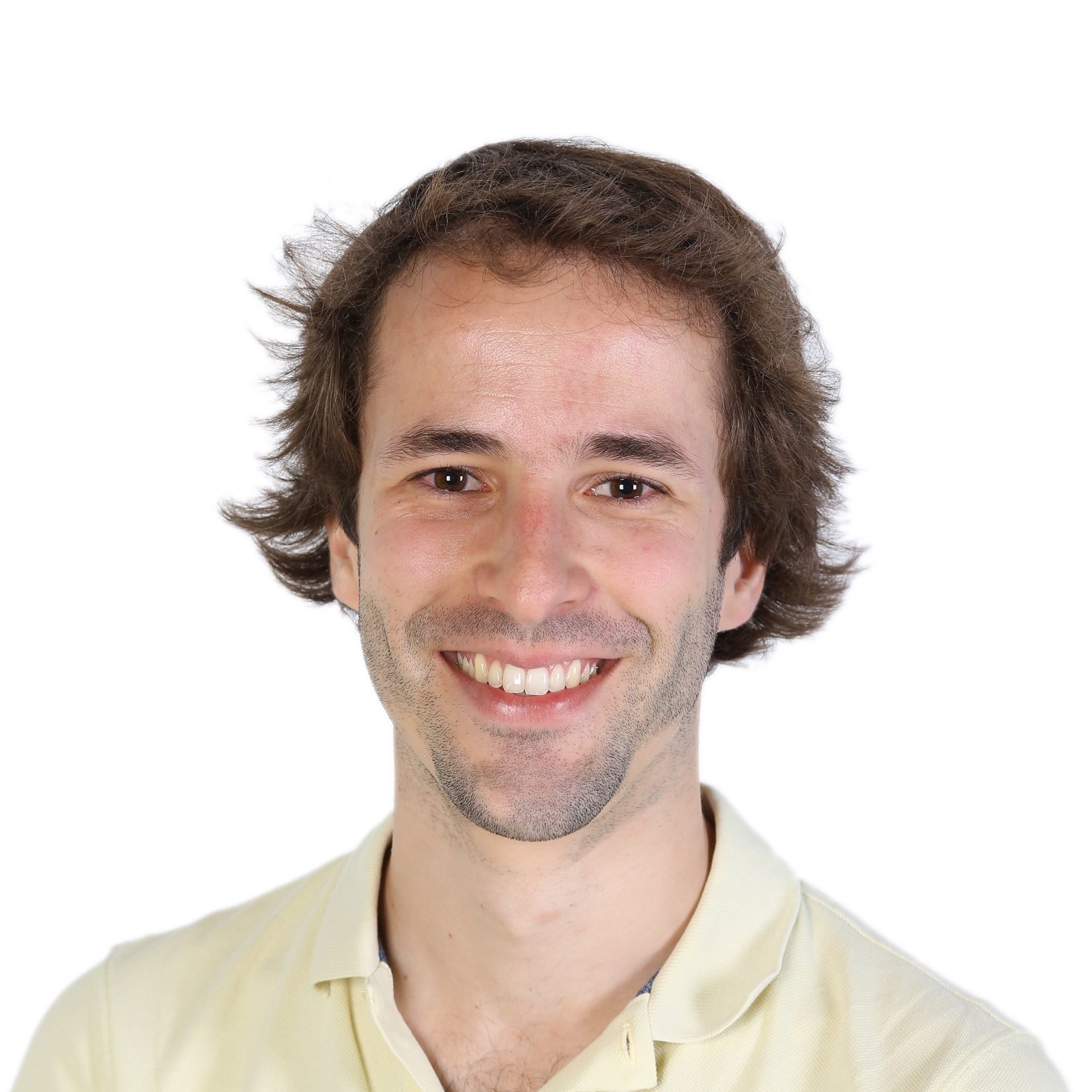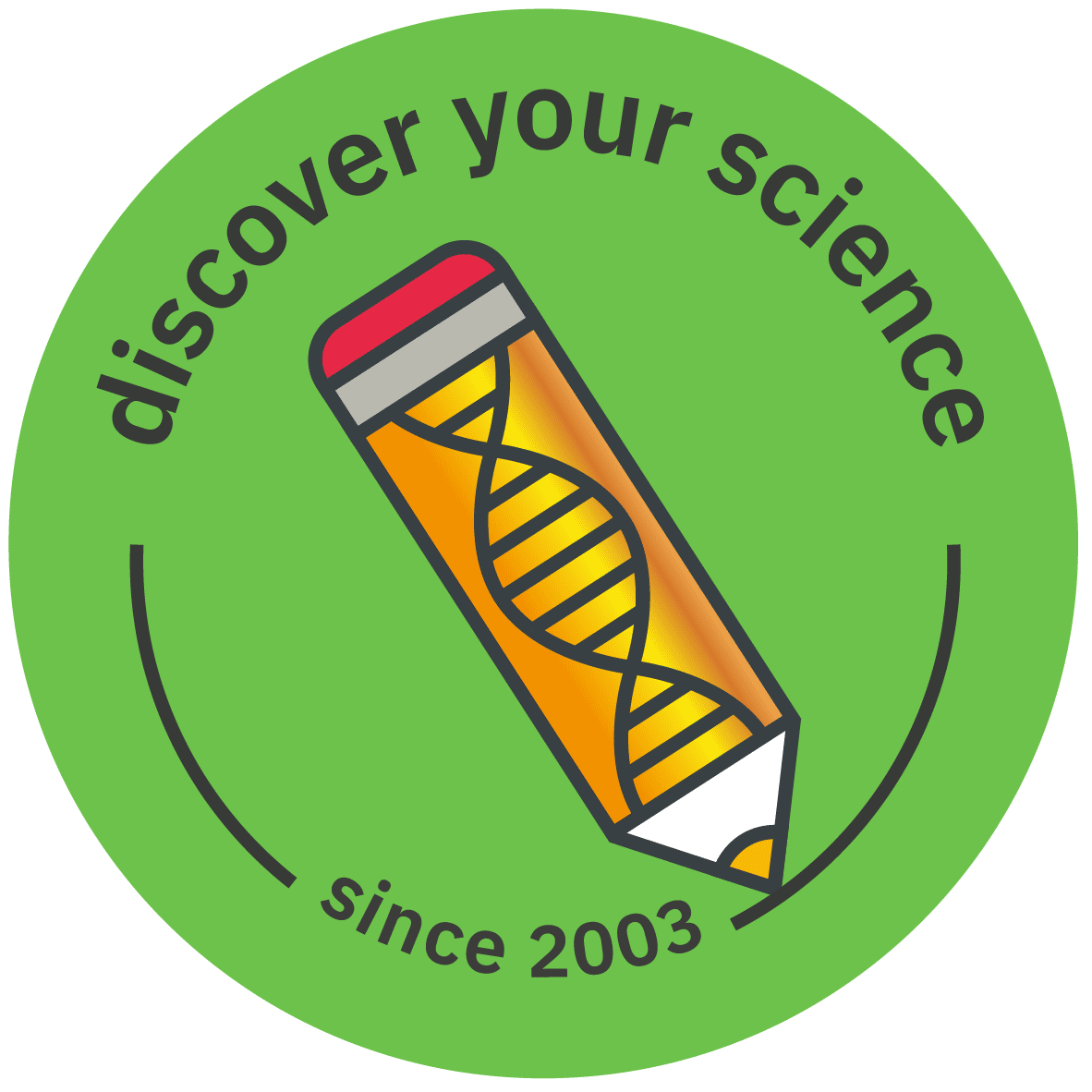EMBL School Ambassador Rafael Galupa
Country: Portugal
Profile
Hi there! I’m Rafael and I was born in Portugal. I studied Biology in Lisbon, Biomedicine in Stockholm and did my PhD in Genetics in Paris. I’m now living in Heidelberg and doing my postdoc in the Crocker lab, engineering gene regulation in the early fly embryo. As an embryo develops, a lot of precision in gene activity is needed to determine which cell fates will be determined, and I would like us to have an integrated view of how this precision is achieved.
When I joined EMBL and first heard about the EMBL School Ambassador Programme, I knew this was something I wanted to be part of. I know from experience how interacting with students can be very gratifying and stimulating, besides fulfilling what I consider to be one of the important responsibilities of scientists – outreach. How often does responsibility mean fun?
During my undergraduate studies, I worked as a school guide both in the Lisbon Zoo and in the UL Botanical Garden. I loved to share with students all the animal and plant trivia I knew back then and get them excited about those exotic specimens, and aware about their conservation. Did you know that the hippo’s sweat acts like a sunscreen? Or that magnolias’ seeds are so hard that they first need to be digested by birds before germinating? I also participated in the 2010 and 2012 editions of the International Research School in Moscow, mentoring high-school students from all over the world on simple Molecular Biology projects. During my PhD, I embarked on a new outreach experience with Native Scientist, bringing scientists into classrooms to talk about science with migrant students in their native language. These events often represented the first time those kids met a scientist! Few things are as rewarding as feeling that we might have made a difference in a student’s life.
So what are you waiting for to become a School Ambassador at EMBL?
Read about my experience in the diaries!
Diary 1
Visit to the High School of Leal da Câmara
Rio de Mouro, 28th February 2019
Last year I had the opportunity to teach at a Master’s programme in the University of Lisbon, as an invited speaker in the subject “Research Frontiers in Biology”. When I received the invitation again this year, I thought it would be a great opportunity to couple it with EMBL School Ambassador Programme and try to reach out more students and from different ages.
I therefore contacted my former high-school Biology teacher, Prof. João Manique, to organise a class with his students as well. He received the challenge with enthusiasm and we set a video call to talk through how to make it happen in a way that would meet the expectations of 15-years old students. I was pleased to find out that these students had been attending already a series of seminars organised at the school revolving around the thematic of the Oceans. I could easily make connections with EMBL and the TARA Oceans project, for example! We set a date for my presentation and arranged it to happen in the school’s amphitheatre for two classes of first-year high-school students (55 in total).
While preparing the presentation, I tried to imagine how I felt fifteen years ago when it was me starting high school and what I would have liked to be told or shown by a scientist. I decided it would be important not only to illustrate the science I have been doing in an attractive way, but also to tell them about my path since I left high school. In particular, letting them know the hows and the whys of the different choices I made, especially at each transition point, in becoming the scientist and person I am today. I wanted this presentation to be something informal, more like a conversation, in which they would feel comfortable to participate – and so it happened. I made sure I would sometimes throw questions at the audience – and slowly they started losing their natural shyness and participate. During the Q&A session at the end, question after question, we explored further some aspects of research, from what drives scientists to how critical it is to speak good English or recent discoveries made with the fruit fly.
More than anything, I wanted to them to feel that they could too become scientists if they wanted to – or anything else they dreamt of. I hope I accomplished my mission – at least I was satisfied to see that 75% of them could imagine themselves doing research, according to the questionnaire they filled in the day after the presentation. You can download the results of the questionnaire below.
Next year I am doing this again!

Diary 2
Visit to the University of Lisbon
Lisbon, 1st March 2019
Last year my former Molecular Biology professor at the University of Lisbon invited me to participate in a series of lectures for their Master’s programme called “Research Frontiers in Biology”. I really enjoyed this experience, so when I was invited again this year I knew I didn’t want to miss it!
Learning from having done it already once, I structured my presentation in two parts, especially given that I had three hours at my disposal. So the first was devoted to my scientific path so far and to some reflexions along the way, and the second had the format of a scientific seminar.
I told them about my different experiences abroad, what motivated me at each step after finishing my bachelor at that university, and the different activities I got involved with. I wanted to pass across the idea that they should try out as many different things as possible in order to figure out what they like and what they don’t – especially since these students are in the first year of their master’s, and will soon be choosing the laboratories where to do their master’s thesis research and figuring out what to do next. I also wanted them to know that while a PhD might seem a natural progression after finishing the Master’s, this should be a well-informed and reflected-upon decision. We discussed several aspects of this, from how to choose a lab for the PhD to some statistics on how people with a PhD are not more or less happy than people without one (nor earn better salaries!). We also talked about potential careers before or after a PhD – and for this I prepared a slide on current positions of people from my university cohort. I also invited them to reach out to people to ask them about their jobs, through email or Linkedin – they were surprised to realise that it could be this simple.
While last year it was this first part that generated lots of questions and engagement, this year was rather the opposite – they were clearly very intrigued and curious about the scientific topic I chose to present. Last year I had decided to talk more generally about gene regulation during development, with a focus on cis-regulatory elements, DNA topology and the recent techniques that were developed to study this, which I have used extensively. However, I felt back then that these subjects remained rather abstract to them, while lots of questions were raised when I mentioned the function of the locus I was studying on the X chromosome. So this year I decided to talk about X-chromosome inactivation, the topic of research of our current Director General, and which I studied during my PhD. The questions were so many that I didn’t have time to go through half of my slides – but that didn’t matter at all. I was happy to see them so engaged and curious, formulating their own hypothesis – as I would often throw the questions back at them – and discovering a new world of molecules and mechanisms they didn’t know about. I could also feel their surprise about how many questions we still don’t have answers for – but this was part of my goal too: getting them intrigued, and perhaps motivated to go look for those answers in their research… Maybe it will be the case – at the end a couple of them came to ask for internship opportunities!
I find it very gratifying and fulfilling to do this sort of outreach – and the more I do it, the more I realise how I like doing it, in a clear self-reinforcing loop.


